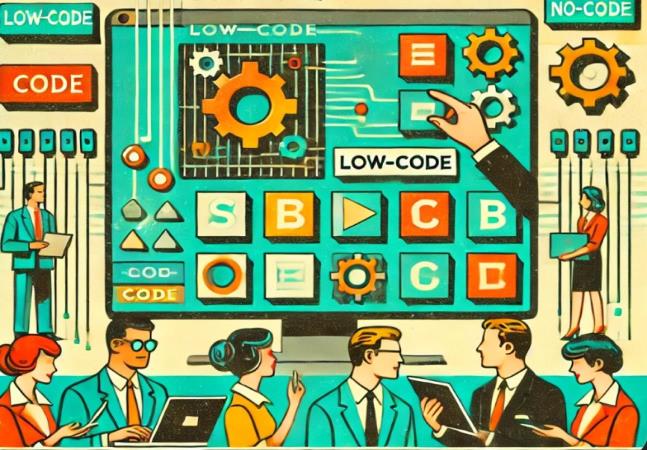
Our columnist envisions a future where citizen developers will be able to create their own "head count" of AI agents performing all manner of tasks for them.

Our columnist throws a spotlight on the Outsystems Platform because, as he sees it, the introduction of its Mentor AI application generator late last year demonstrates the inevitable intersection of LCAP and Generative AI.

Our columnist weighs in on the implications for developers of the Agentic World and Microsoft's full-throated endorsement of AI Agents.

Our columnist offer advice on how citizen developers can make the most of AI advancements and developer their prompt engineering skills.

Our columnist offers his take on a new layer of abstraction, which he and others are calling "Citizen AI."

Our columnist takes a look at the maturing market for low-code/no-code platforms, and offers some advise on how to select the LCNC tools that are right for you.

Our columnist advises Citizen Developers to incorporate more into their training than simply instruction on how to use low-code/no-code platforms. And he offers his view on what they need to know.

Our columnist weighs in on the emergence of the newish industry analyst term "Citizen AI" and what it bodes for the future of the Citizen Developer.

Our columnist weighs in on the impact of AI on low-code/no-code development, and what the future may hold.

Our columnist ponders the question, Are companies seeking citizen developers missing the point of citizen development?

The world of the citizen development continues to evolve at an ever increasing pace. Our columnist explores the implications of LCNC development in the future as it becomes a mainstream part of the developer landscape.

Our columnist looks at some predictions about one of the most commonly expressed concerns about the advent of AI, and the role of "TuringBots" will play in the evolution of the relationship between developers and AI-based coding tools.

The lines between users and citizen developers start to blur, and our columnist points to Microsoft's efforts in this area as evidence that Redmond wants to establish itself as the leader in citizen development.

Our columnist takes a look at some predictions impacting Citizen Developers, and speculation that the majority of software will be developed without coding.

Microsoft's Copilot in PowerApps allows devs to describe the app they want to build, and then an AI will design it for them. This development has our columnist almost speechless.

If you want your fledgling developers to succeed and thrive, our columnist advises, give them some "band-aid" projects they are likely to solve. It will build their skills and their enthusiasm for the role.

The evidence of the growing impact of AI on the tools and platforms used by citizen developers is inescapable, our columnist observes. If the low-code/no-code platform providers are embracing the value of this "collision of computing crazes," shouldn't you?

The "software skills gap" is nothing new, and it keeps getting wider because we can’t seem to train enough coders fast enough. The solution a growing number of organizations are turning to is the citizen developer. But according to our columnist, a great citizen developer needs more than basic training.

It’s safe to say there are hundreds of low-code/no-code application development platforms currently available, with more on the way. Having so many choices can be as much of a challenge as it is an advantage. Our columnist offers advice and strategies on the critical task of evaluating and selecting an LCAP.

Anyone could become a citizen developer, but it's not for everyone. Our columnist offers a list of 10 essential personal traits of the model citizen developer.